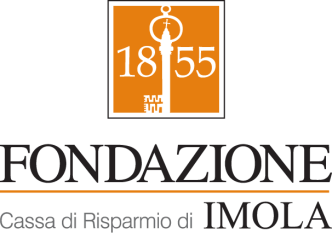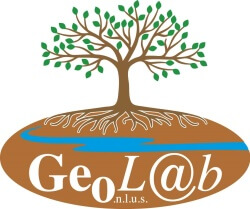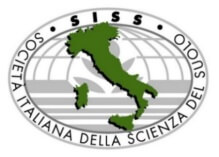RESPONSE OF TOMATO PLANTS EXPOSED TO TREATMENT WITH NANOPARTICLES
DOI:
https://doi.org/10.6092/issn.2281-4485/3748Keywords:
nanoparticles, tomato, hydroponic, root uptakeAbstract
In this work the response of Tomato plants cv. Micro-Tom to nanoparticles (NPs) treatment was investigated. Tomato seedlings were grown in hydroponic condition and NPs treatments were carried out by adding Fe3O4 or TiO2 NPs to nutrient solution. At the end of treatments, NPs root uptake and tissue deposition were investigated using Environmental Scanning Electron Microscope, equipped with energy dispersive spectroscopy for chemical identification. At morphological level, one week after the beginning of NP treatment, seedlings grown with high concentration of TiO2 NPs showed an abnormal proliferation of root hairs, as compared to the control seedlings and to the seedlings exposed to Fe3O4 NPs, Shoot morphology did not differ in tomato seedlings grown under different conditions and no symptoms of toxicity were observed in NP-treated plants. In order to analyse genetic effects of NPs treatments, RNA transcription was studied in roots of NP-exposed and control plants by Illumina RNA sequencing, evidencing the induction of transposable elements.
References
BAGGERLY K.A., DENG L., MORRIS J.S., ALDAZ C.M. (2003) Differential expression in SAGE: Accounting for normal between-library variation. Bioinformatics 19: 1477-1483
CORREDOR E., RISUEÑO M.C., TESTILLANO P.S. (2010) Carbon-iron magnetic nanoparticles for agronomic use in plants Promising but still a long way to go. Plant Signaling & Behavior 5: 1295-1297
FEIZI H., REZVANI MOGHADDAM P., SHAHTAHMASSEBI N., FOTOVAT A. (2012) Impact of Bulk and Nanosized Titanium Dioxide (TiO2) on Wheat Seed Germination and Seedling Growth. Biol Trace Elem Res 146: 101–106
GOTTSCHALK F., SONDERER T., SCHOLZ R.W., NOWACK B. (2009) Modeled environmental concentrations of engineered nanomaterials (TiO2, ZnO, Ag, CNT, Fullerenes) for different regions. Environmental Science & Technology 43: 9216–9222
GRANDBASTIEN M.A. (1998) Activation of plant retrotransposons under stress conditions. Trends Plant Science 3: 181-189
HANDY R. D., OWEN R., VALSAMI-JONES E. (2008a) The ecotoxicology of nanoparticles and nanoma¬terials: current status, knowledge gaps, challenges and future needs. Ecotoxicology 17: 315-325
HANDY R. D., VON DER KAMMER F., LEAD J. R., HASSELLOV M., OWEN R., CRANE M. (2008b) The ecotoxicology and chemistry of manufactured nanoparticles. Ecotoxicology 17: 287-314
HIROCHIKA H. (1993) Activation of tobacco retrotransposons during tissue culture. Embo J. 12: 2521-2528
HIROCHIKA H., SUGIMOTO K., OTSUKI Y., TSUGAWA H., KANDA M. (1996). Retrotransposons of rice involved in mutations induced by tissue culture. Proc. Natl. Acad. Sci. USA 93: 7783-7788
KIM S., LEE S., LEE I. (2012). Alteration of Phytotoxicity and Oxidant Stress Potentialby Metal Oxide Nanoparticles in Cucumis sativus. Water Air Soil Pollut DOI 10.1007/s11270-011-1067-3
KUREPA J., PAUNESKU T., VOGT S., ARORA H., RABATIC B.M., LU J.(2010). Uptake and distribution of ultrasmall anatase TiO2 alizarin red S nanoconjugates in Arabidopsis thaliana. Nanoletters 10: 2296- 302
LARUE C., KHODJA H., HERLIN-BOIME N., BRISSET F., FLANK A.M., FAYARD B., CHAILLOU S., CARRIÈRE M. (2010). Investigation of titanium dioxide nanoparticles toxicity and uptake by plants. Nanosafe: International Conference on Safe Production and Use of Nanomaterials IOP Publishing Journal of Physics: Conference Series 304 (2011) 012057 doi:10.1088/1742-6596/304/1/012057
LEE C.W., MAHENDRA S., ZODROW K., LI D., TSAI Y.C., BRAAM J., ALVAREZ P.J.J. (2010). Developmental phytotoxicity of metal oxide nanoparticles to Arabidopsis thaliana. Environmental Toxicology and Chemistry 29: 669–675
LIN B.L., SHEN X.D., CUI S. (2007). Application of nanosized Fe3O4 in anticancer drug carriers with target-orientation and sustained-release properties. Biomed. Mater. 2: 132
LIN D.H., XING B.S. (2008). Root Uptake and Phytotoxicity of ZnO Nanoparticles. Environ. Sci. Technol. 42: 5580–5585
LIN D. H., XING B. S. (2007). Phytotoxicity of nanoparticles: inhibition of seed germination and root elongation. Environ. Pollut. 150: 243–250
LISCH D. (2009). Epigenetic regulation of transposable elements in plants. Annu Rev Plant Biol 60: 43–66
LOGEMANN J., SCHELL J., WILLMITZER L. (1987). Improved method for the isolation of RNA from plant tissues. Anal Biochem 163: 16–20
MEISSNER R., JACOBSON Y., MELAMED S., LEVYATUV S., SHALEV G., ASHRI A., ELKIND Y., LEVY A.A. (1997). A new model system for tomato genetics. The Plant Journal 12: 1465–1472
MORIN R.D., O'CONNOR M.D., GRIFFITH M., KUCHENBAUER F., DELANEY A., PRABHU A.L.,ZHAO Y., MCDONALD H., ZENG T., HIRST M. (2008). Application of massively parallel sequencing to microRNA profiling and discovery in human embryonic stem cells. Genome Res. 18: 610–621
MORTAZAVI A., WILLIAMS B.A., MCCUE K., SCHAEFFER L., WOLD B. (2008). Mapping and quantifying mammalian transcriptomes by RNA-Seq. Nature Methods 5: 621 -628
NAVARRO E., BAUN A., BEHRA R., HARTMANN N. B., FILSER J., MIAO A. J., QUIGG A., SANTSCHI P. H., SIGG L. (2008). Environmental behavior and ecotoxicity of engineered nanoparticles to algae, plants, and fungi. Ecotoxicology 17: 372
RUFFINI CASTIGLIONE M., GIORGETTI L., GERI C., CREMONINI R. (2011). The effects of nano-TiO2 on seed germination, development and mitosis of root tip cells of Vicia narbonensis L. and Zea mays L. J. Nanopart. Res. 13: 2443–2449
SCHIEFELBEIN J.W. (2000). Constructing a plant cell: The genetic control of root hair development. Plant Physiol. 124: 1525-1531
SCHMIDT W., SCHIKORA A. (2001). Different Pathways Are Involved in Phosphate and Iron Stress-Induced Alterations of Root Epidermal Cell Development. Plant Physiology 125: 2078-2084
YANG F., HONG F. S., YOU W. J., LIU C., GAO F. Q., WU C., YANG P. (2006). Influences of nano-anatase TiO2 on the nitrogen metabolism of growing spinach. Biol. Trace Elem. Res. 110: 179–190
YI D. K., LEE S. S., YING J. Y. (2006). Synthesis and Applications of Magnetic Nanocomposite Catalysts. Chem. Mater. 18: 2459–2461
ZHANG J., YU C., KRISHNASWAMY L., PETERSON T. (2011). Transposable elements as catalysts for chromosome rearrangements. Plant Chromosome Engineering. Methods in Molecular BiologyEds Springer 701: 315-326
ZHENG L., HONG F., LU S., LIU C. (2005). Effect of nano-TiO2 on strength of naturally aged seeds and growth of spinach. Biol. Trace Elem. Res. 106: 279–297
ZHU H., HAN J., XIAO Q.J., JIN Y. (2008). Uptake, translocation, and accumulation of manufactured iron oxide nanoparticles by pumpkin plants. J. Environ. Monit. 10: 685–784.
Downloads
Published
How to Cite
Issue
Section
License
Copyright (c) 2012 Tommaso Giordani, Alberto Fabrizi, Lucia Guidi, Lucia Natali, Giulia Giunti, Fausto Ravasi, Andrea Cavallini, Alberto Pardossi
Copyrights and publishing rights of all the texts on this journal belong to the respective authors without restrictions.
Articles published since 2020 are licensed under a Creative Commons Attribution 4.0 International License:
Previous articles are licensed under a Creative Commons Attribution-NonCommercial 3.0 Unported License:











